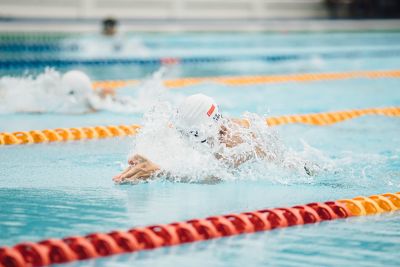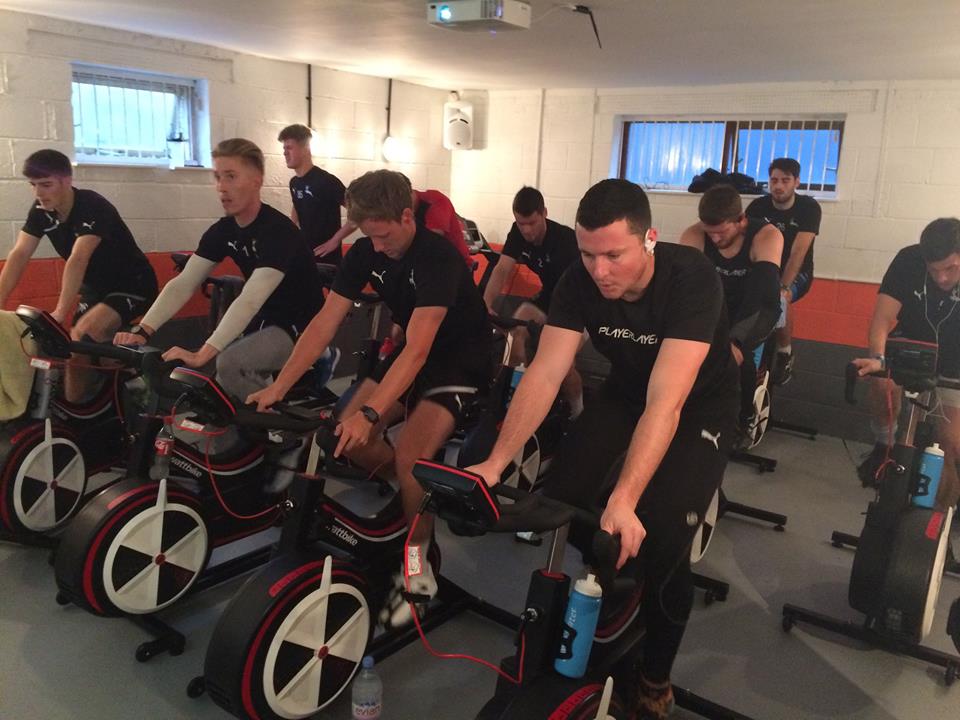

As a coach, I have learned that it is a physically, psychologically and sociologically demanding lifestyle. It requires purpose and passion to be the main driver of daily efforts, engagements and decisions. Within all sport, I believe a coach’s main priorities are the welfare, performance enhancement and holistic development of the people within the sporting community. With this in mind, recognition must be made of the fact that the vast majority of a coach’s life is shaped by the needs of others. Within this piece, I hope to provide insight to one day of my working week as a developing coach within a Club and World Class coaching environment.
Early Start
Sitting at breakfast during the lonely hours of the morning, every training session, meeting, travel movements, meal times, admin jobs etc is thought about… a lot! Right from the start, I am massively overthinking what lies in store for me during the calm moments prior to leaving the house. It may be a natural disposition of mine; however, I am fully aware of other coaches in the field who can relate.
My biggest thoughts revolve around how I can be of value to others and what experiences can I maximize that would be of value to me. That really does underpin a lot of what I think about most of the time. The routine is second nature, but what is it I can do differently or better today that would create greater learning? Once everything is sorted and prepared, I begin to make final preparations of things I need for the day; bag, laptop, pens, coaching folder, spare change of sports clothes, stop watches, reflection log book and other sporty clutter! Before I leave my room, I have a little ritual that started ever since I hung up the picture. The image is of two lions roaring at each other face to face. The quote underneath reads “If you want to be a lion, you must train with lions.” I tap the picture as a sign of commitment that I am willing to throw myself into challenging circumstances, with significant others, to accelerate my development as a person and a coach.


First engagements
Like most days, I find myself at the Loughborough University swimming pool to kick start the day. Throughout the week on campus, I have 3 different responsibilities with the Paralympic, Olympic and University squads. Each has its own unique qualities and challenges but nonetheless a similar fast moving, dynamic and unpredictable environment that keeps me heavily engaged.
I tend to greet the coaches at pool side first as we begin to discuss and draw up the session plan for the athletes attending. This generally is a recollection of previous session learnings alongside concurrent plans that influence how we intend to challenge an athlete(s) today. An example might be how we construct individually-specific pressure repetitions (either short and fast or slower yet extended) after technical development drills to see how an athlete’s stroke mechanics can be made robust and consolidated under fatigue. As athletes begin to emerge from the conditioning room to pool side, I try and spark some conversation with one or two of them to see how they are doing. If they are a student-athlete, I’m always interested to see if they are maintaining a good balance between training and studies. Having experienced this process myself, I recognize the strain it can have on lifestyle so I ensure they have support if needed.
During session briefings, the main priority is to show what the outline of physical and technical repetitions/sets the athletes will undergo. What I tend to look for is whether the athlete will challenge this and want to make small adjustments for their own personal value. A desirable outcome from the coaching process, recognized by British Triathlon, is an athlete becoming an independent learner and problem solver. Guided challenge and discovery is often promoted by the National Governing Body. Within my practice, I aspire to this through the use of questioning; “How could we make this harder?” “From the previous session, what changes will you make to this?” “What approach will you use for this scenario?” “What ideas do you have for…?” “What would be the value of…?” What would happen if…?”
Instead of assuming they always require my own knowledge and opinion, I am interested in what/how the athlete perceives and interprets. I may challenge an athlete by suggesting alternatives or inviting other inputs from coaches, so there is a ‘push and pull’ effect happening to meet a coherent understanding of how an athlete(s) will maximize the opportunity in front of them.
With the World Class Programs, athletes tend to have more autonomy within sessions. Therefore, coaching support is mainly achieved through observation, analyzing and feeding-back athlete requested process or outcome measures. I personally like to focus more on the process. This is because I feel it engages athletes better with what they can control, which is themselves! A lot of the time athletes get caught up with the numbers and comparing them to other/normative values, which can have a damaging effect on their motivation and effort. I use my experience with all individuals to know when it is appropriate to feedback and how. Also, the theme of the session plays an important factor to types of feedback. For example, during a high intensity interval session, I wouldn’t want to always impose my subjective observations of stroke mechanics in an interval whilst their heart rate is near maximal, as they probably require knowledge of results to know their pacing per repetition. In reverse, constant objective timing feedback wouldn’t be of any use to an athlete during technical development sessions as the subjective nature of athlete feel and visual cues is of greater significance in this context.
Post session reflections are mostly underpinned by the common interest of what went well/not so well, why, what does it mean, and how will we collectively move forward? Again questioning is a key coaching behavior to challenge, influence thought or elicit new understanding within the group. When I first started using reflection, I wasn’t quite able to recognize what was most important to focus on from the session to harness its experience. Now, I feel I have a developing foundation of practice that enables me to direct focus better and recognize what the more significant learnings from sessions are. I write in my log book what the key take home messages are from these conversations so that I can recall them back in future. When parting ways with the group, I have a saying that tends to stick with the group as a humorous, yet rational, instruction; “Go and get something to eat!” Athletes appreciate this as you can imagine they will require a large intake of nutrition throughout the day!
Motoring on
My car could well be my other ‘home from home’ as I spend a lot of time transporting myself in it backwards and forwards between coaching jobs. This travel time is a nice way of taking myself out of the hustle and bustle of the day, whilst letting myself recharge ready for the next challenge ahead. Race Hub, in Six Hills, Leicester, is my main club outside of the Lougborough Triathlon Centre. It is a great platform to explore other avenues of coaching as the variety of members, exciting projects and open water/indoor bike facilities are great to immerse myself within. Driving through the country roads to reach it are normally quiet so the journey is often smooth.
Club Community
As I arrive, my first role tends to be coaching the indoor wattbike session. I absolutely love the “pressure cooker” feel to high intensity interval sessions with 11 people absolutely giving it their all, immersed within the sounds of Race Hub’s Spotify albums. What I appreciate the most about this is that the people that come to these sessions tend to use the wattbike as a means of gaining higher level fitness as well as decompressing their stresses throughout their busy weeks. Listening to their stories or encouraging them to keep getting better technically, to keep driving and committing even though their heart rate is at maximal becomes incredibly powerful.

In-between sessions I tend to use the time to either continue working on project planning for the club or facilitate the café services. Depending on the time in the year, the café can get pretty busy. Serving anyone a coffee and cake is a nice little addition to my day. Working within the community is a fantastic opportunity to get to know the people who love the sport other than performance aspirations. I often get the pleasure of introducing people to triathlon disciplines. These first engagements are crucial and can immediately shape their perception. Therefore, I harness the energy and opportunities Race Hub has to offer in order to increase the chance of their longevity within the sport. With this in mind, the accumulation of experiences here and at Loughborough further embeds my passion to commit my life to sport. People of all ages and lifestyles come together to use sport as a platform for expressing themselves. If I can work as part of a support team to facilitate their journey, then that’s time worth spending!